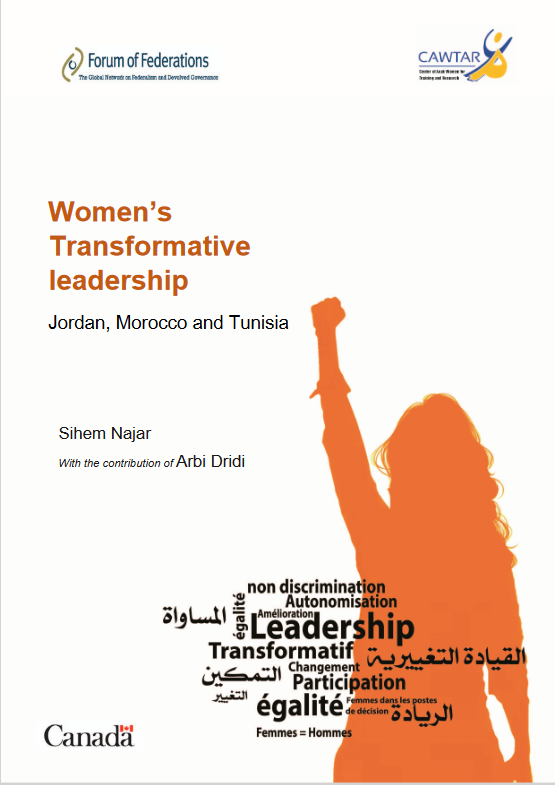Library

Language:
EnglishTopic:
Leadership, Women, Women's empowermentCollection:
MENA PublicationsCountries:
Jordan, Morocco, TunisiaAuthors:
Publication Year:
2023
This research launched by the Center of Arab Women for Training and
Research (CAWTAR), with the support of the Forum of Federations,3
addresses a classic and yet a currently topical issue that refers to the power
of influence of women in an environment broadly marked by male
domination.
The research focuses on two main areas. The first area uses a
comparative approach that focuses on female figures who have used their
power of influence in various contexts. The second area uses a diachronic
perspective that seeks to identify profiles of women from various generations
and historical periods whose pathways have allowed them to influence their
entourage and whose profile traits remain etched in the collective memory
(in Tunisia, Jordan and Morocco). Such an approach tends to join the
interplay of individual and collective memories, social relations and social
morphology that constitute the background of Women’s transformative
leadership. It is also a locus of local – global, contextual – universal
articulation. Furthermore, it should be emphasized that the present work is
premised on a bias in favor of those “unrecognized,” even invisible and
underestimated female leaders who have transformed their environment in
the interior regions of the countries under examination.
Additionally, it is important to keep in mind that the subject of leadership is
handled from a variety of perspectives, including authority, decision-making,
the capacity to act, the capacity to uphold group cohesion, direction, and
influence, among others. Given that this research frequently focuses on
transformative leadership, the emphasis will be on women power of
influence. Far from minimizing the weight of other components of
leadership, influence serves as an initial parameter that will allow us to
investigate the extent to which women are able to act in their entourage by
exerting influence on the people (and institutions) around them

